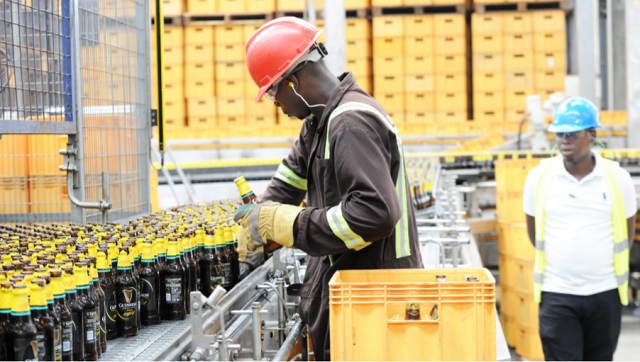
COVID-19: Manufacturers seeking more support

Government urged to offer rebates on taxation, wages, savings, and electricity
Kampala, Uganda | JULIUS BUSINGE | Manufacturers under their umbrella body, Uganda Manufacturers Association are in the early stages of engaging the government on a possible extension of the COVID-19 support that they were given for six months starting April.
Daniel Birungi, the executive director for UMA said the group plans to have further discussions with the government on the possibility of opening up new markets, lowering further taxes on manufacturing inputs, cutting down the cost of electricity and ensuring that UMA members get quality services from power distributors.
Birungi, who was speaking at the 8th CPA Economic Forum organized virtually by the Institute of Certified Public Accountants of Uganda on Sept.03, also said they are also pushing for quick setting up of industrial parks in the newly created cities countrywide.
He said they are also planning to engage NSSF for another extension of the employers’ amnesty following the expiry of the earlier one granted for April till June this year – to enable struggling companies return to their normal operations.
The manufacturing sector, according to Birungi contributes 36% of tax to government annually and consumes 70% of the electricity generated.
Supporting manufacturers, Burungi said, has a direct impact on the performance of the economy in relation to creation of jobs, paying of taxes and supporting welfare of individuals and communities in places of their operation.
Meanwhile, Birungi said UMA recently conducted a survey using 108 members and discovered the real impact of COVID-19 on businesses for his members.
He said, out of the sampled respondents, 25% of them (respondents) stopped production while 45% scaled down production by 50% or even more while about 30% of the respondents said that the real impact of the pandemic was first felt when China started the lockdown early this year because of their links with China’s economy.
Birungi revealed that most of his members were and are still unable to access export markets due to all forms of travel restrictions.
They were also unable to access raw materials especially those sourced outside Uganda and that some of their key personnel were also held up for long outside Uganda. In addition, factory workers were unable to freely move between March and June during the periods of total lockdown, hence affecting production.
Nevertheless, the pandemic also created opportunities for manufacturers to make money by producing sanitizers, face masks which are being used to stop the spread of coronavirus.
Birungi said his members responded to COVID-19 by putting in place a no mask, no entry approach into their factories, temperature guns, hand washing materials and training of staff on coronavirus prevention measures.
He said that many moved fast to invest in fast moving goods like surgical masks as well as limited physical staff interactions by ensuring that a section of workers work from home. Those that had to move to offices or factories, had to be transported by company vehicles.
He also said they achieved a deferral for payments of PAYE, and loan repayment/restructuring for at least 12 months. Manufacturers of healthcare products – sanitizers, face masks and others were exempted from paying excise duty.
They were also successful in convincing URA not to penalize those not paying some taxes for a period of six months.
“Our manufacturers are resilient,” Birungi said, “If the government works with the private sector in correcting this situation, we can avoid sliding further into economic crisis,” he added.
Expert views
While delivering a keynote speech at the forum, Wasswa Balunywa, an economist and principal for Makerere University Business School said, companies, where necessary, should work towards cutting costs so as to survive the COVID-19 pandemic.
He also said factories and businesses should downsize by closing some production lines until the COVID-19 threat is minimised.
Balunywa said that in making these decisions, it is important for business managers to communicate to suppliers, creditors, customers, banks and other players in their line of business.
He agrees with Birungi, saying the government must revisit its policies by reducing tax such as corporate tax rate from 30% to 20%, waive PAYE for more months and offer wage subsidies to workers.
In terms of agriculture, Balunywa said the government should assist farmers with inputs and related support. He said the government should also fight corruption and eliminate all forms of inefficiencies to ensure that the economy and the people survive during and after COVID-19 era.
****
The post COVID-19: Manufacturers seeking more support appeared first on The Independent Uganda:.
0 Response to "COVID-19: Manufacturers seeking more support"
Post a Comment